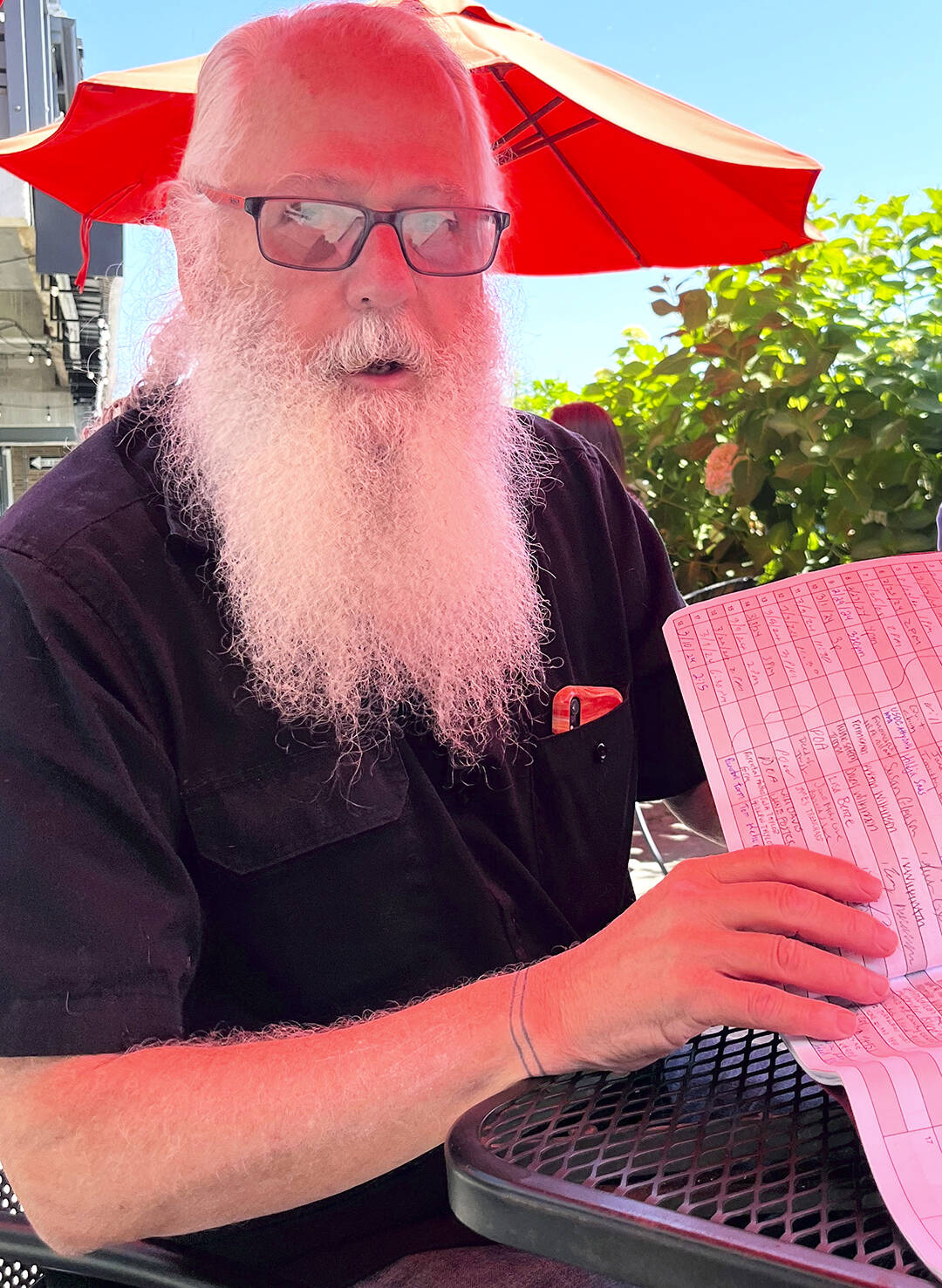Bainbridge Island’s Gerald Simonsen’s notoriety is he notarizes documents for free—starting when people were stranded during COVID—along with making balloon animals.
Most notary publics charge $10-$20. “Why not?” Simonsen said, explaining what motivates him to notarize without payment. “What am I gonna do anyway, charge people for stamping a piece of paper?”
Notarizing a document is a way of verifying the validity of a person’s signature, where a notary acts as a witness to the signing and confirms the signatory’s identity. Official documents like wills, certain legal paperwork, real estate transactions and more all require the seal of a notary to be considered valid. During the COVID pandemic, many local institutions that offer notary services closed, which left some islanders in a pinch.
Simonsen saw many requests online for notary services from fellow community members and decided to become authorized. And since many people were housebound, he decided to offer a mobile service to reach those who were stuck at home. Gradually, he started adding novelties to his services that helped liven up the process — he can make balloon animals for any kids who tag along, for example. “During the pandemic, it was a lot of marriage licenses and a lot of wills,” he said.
Because documents that must be notarized typically correspond with major events, Simonsen gets to meet people at the cusp of big adventures or transitions. He remembers notarizing a marriage license for two women early on during the pandemic; they later returned to have their divorce papers notarized. That was a bit sad, Simonsen said, but life goes on. Recently, one of the women asked to have a new marriage license notarized.
Word of Simonsen’s work spread. Today, he meets with at least one or two people per day, and local institutions have begun to acknowledge his services. He is now a designated “courtesy member” of the BI Chamber of Commerce, which doesn’t come with any benefits, but is a stamp of approval.
“I think that he’s been providing a resource for people, and he’s been able to be a supportive partner,” said Erika Borg, interim director of the chamber. “I don’t think he’s getting any benefits from it—so much as just offering up this service in times of need.”
Notarizing a document is straightforward. There are three rules: bring your ID card, read your document beforehand, and whatever you do, don’t sign it until Simonsen can watch.
Occasionally, Simonsen runs into some complications. He once met with a college student who didn’t know how to sign his name — the kid never learned cursive — and another time, about 20 parents of high school students swarmed Simonsen, clamoring to notarize international travel documents for a study abroad trip at the last minute.
But it’s never an issue. Notarizing is a small deed, but an important one, and Simonsen plans to continue offering services for the foreseeable future. “As long as I can lift the stamp,” he said.


